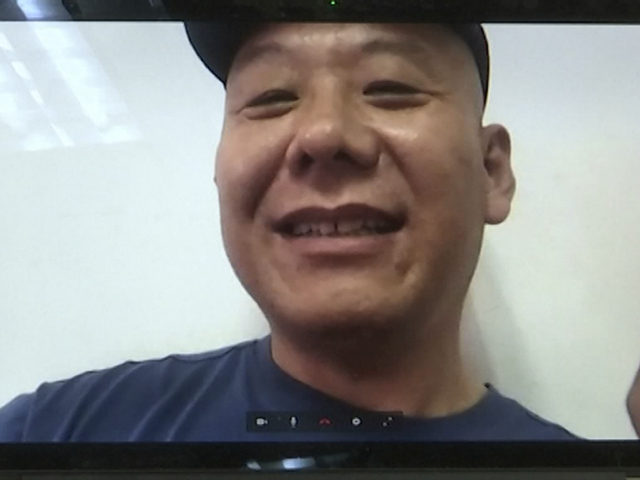Dissident Zhang Xiangzhong has returned to China after being denied asylum in Taiwan, in a move some observers describe as Taiwan’s bid to cultivate better relations with the mainland.
Zhang came to Taiwan on April 12 as part of a tour group, which he abandoned after one day. Immigration officials found him hiding at the home of a friend in New Taipei City and took him into custody. He applied for political asylum, but his request was denied and, on Wednesday, he voluntarily returned to China.
Technically, Taiwan does not grant asylum to Chinese citizens, but it does occasionally give permission for “long-term residence” to people from the mainland. The official reason given for denying Zhang’s request was that he “did not conform to the rules for special cases of long-term residence currently in effect.”
“After we talked with Zhang and explained to him about the situation, he fully understood what we had told him and agreed to leave Taiwan along with his tour group at the end of their trip in line with the regulations stipulated by the cross-strait travel agreement,” said Taiwan’s Mainland Affairs Council, as quoted by the South China Morning Post.
The New York Times offers a brief review of Zhang’s legal and political history:
Mr. Zhang, who had called for greater transparency from the Chinese government, was detained in 2013 for “gathering a crowd to disrupt public order.” In 2014 he was sentenced on what his lawyers said was a trumped-up charge of credit card fraud, and he was released last July. Mr. Zhang told Radio Free Asia that his conviction was based on a forced confession obtained through torture and that his health had deteriorated while in prison because of a lack of medication for his asthma.
“There’s legitimate concern about Zhang’s safety after he’s sent back to China,” said Patrick Poon, a researcher at Amnesty International in Hong Kong.
Zhang said he was inspired to seek long-term residence in Taiwan by a statement from Lee Ching-yu, the wife of mysteriously detained Taiwanese human rights activist Lee Ming-che. Lee Ming-che vanished during a visit to mainland China in March. Chinese authorities took over a week to admit he was under arrest, on vague charges of threatening national security.
After being denied permission to visit him two weeks ago, his wife accused China of abducting her husband as part of a “political conspiracy” and has expressed a belief that Chinese security services “missed their mark” by arresting the wrong man. She has also said Taiwan’s KMT party is colluding with the Chinese or at least failing to do everything it could to secure his release.
The Associated Press cites unnamed analysts who see Zhang’s return as “a likely bid by President Tsai Ing-wen to stabilize relations with Beijing that have been in sharp decline since her election last year.”
“With dialogue between the two governments suspended by Beijing, analysts say Tsai’s administration may hope China sees Zhang’s return as a goodwill gesture and responds in kind,” the AP adds.

COMMENTS
Please let us know if you're having issues with commenting.